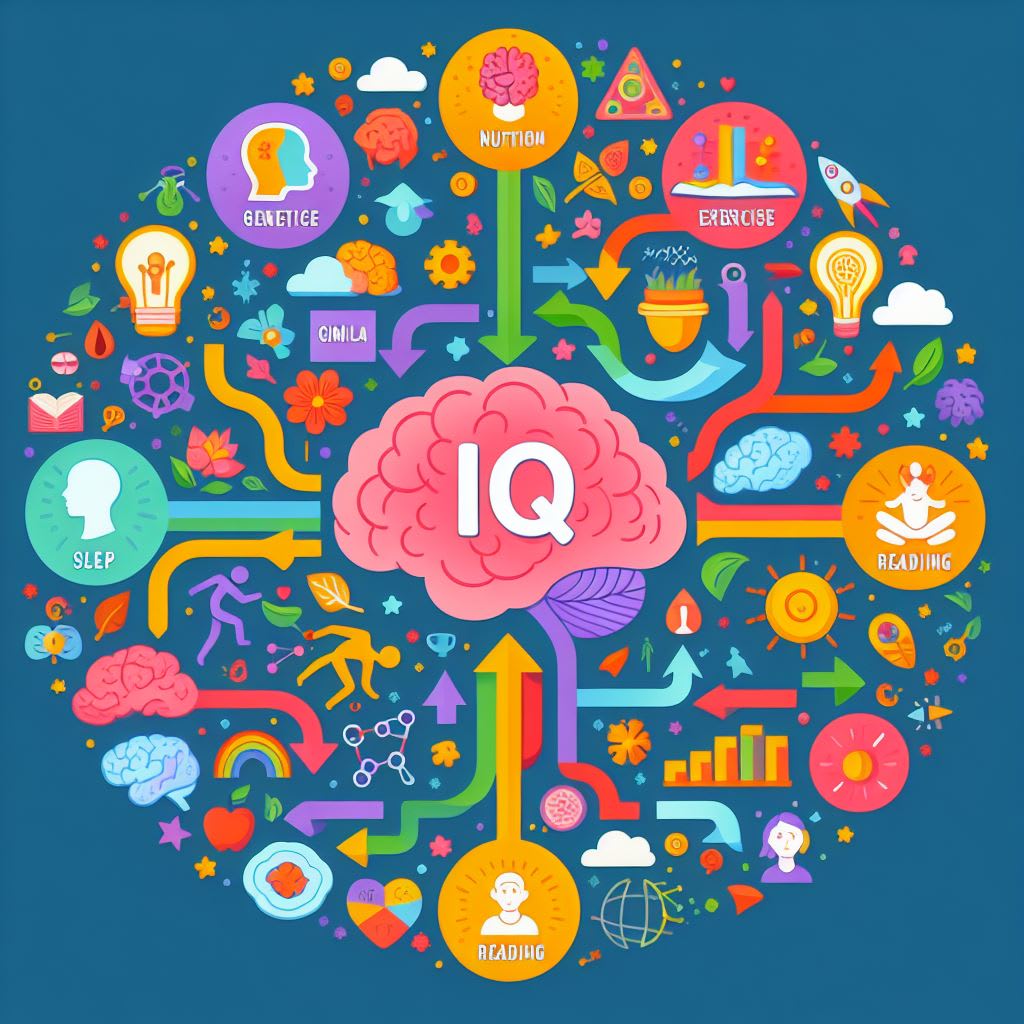What improves your IQ? Does studying increase IQ?
Improve your IQ

Introduction
IQ, or Intelligence Quotient, is a measure of an individual's cognitive abilities and is often considered an indicator of their intellectual potential. Many people are curious about ways to improve their IQ, and a common question that arises is whether studying can have a positive impact on IQ. In this blog post, we will explore various factors that influence IQ and delve into the role of studying in enhancing cognitive abilities.
Factors Influencing IQ
Before discussing the impact of studying on IQ, it is crucial to understand the factors that contribute to one's intelligence level. IQ is influenced by a combination of genetic and environmental factors. While genetics plays a significant role in determining an individual's baseline intelligence, the environment in which a person grows up also has a profound impact on their cognitive development.
Evidence suggests that early childhood experiences, such as being exposed to language and receiving quality education, can have a long-lasting effect on IQ. Additionally, factors like nutrition, socioeconomic status, and mental stimulation also influence intelligence levels. However, it is important to note that genetics plays a crucial role and cannot be completely taken priority over by environmental factors.
The Role of Studying
Now, let's address the question at hand – does studying increase IQ? While studying is essential for acquiring knowledge and developing various skills, its direct impact on increasing IQ is debatable. IQ tests primarily measure an individual's ability to reason, analyze, and problem-solve, and studying alone may not directly improve these skills.
However, studying can indirectly enhance cognitive abilities and contribute to overall intellectual growth. Engaging in academic pursuits, such as reading, analyzing complex texts, solving mathematical problems, and engaging in critical thinking, can improve cognitive functions. These activities stimulate the brain, promote neural connections, and potentially enhance reasoning abilities, which are essential components of IQ.
Moreover, studying exposes individuals to diverse information and helps broaden their knowledge base. Having a wide range of knowledge and a deep understanding of various subjects can positively impact cognitive functioning. When faced with new challenges or problems, individuals with a strong foundation of knowledge are better equipped to analyze, synthesize, and propose effective solutions, thereby manifesting intellectual growth.
The Power of Continuous Learning
While studying alone may not directly improve IQ, the act of continuous learning is an essential aspect of intellectual development. Engaging in lifelong learning not only expands one's knowledge but also helps develop critical thinking skills, creativity, and adaptability. These skills are vital in navigating the complexities of the world and can significantly contribute to one's overall cognitive abilities.
Continuous learning can take various forms, including formal education, self-directed study, engaging in hobbies, or exploring new interests. The process of acquiring new knowledge and skills stimulates the brain, strengthens neural connections, and potentially enhances cognitive performance in various domains.
Challenging oneself intellectually through ongoing learning experiences can help unlock hidden potential and push the boundaries of one's cognitive abilities. By actively seeking out new information, individuals can develop a growth mindset, foster intellectual curiosity, and continuously strive for improvement.
Individual Inconsistency and Measures of Intelligence
It is important to recognize that IQ is not an absolute measure of an individual's intelligence. While it provides a general understanding of cognitive abilities, it does not capture the full range of talents and skills that individuals possess. Intelligence is a complex construct, and various cognitive abilities, such as creativity, emotional intelligence, and practical problem-solving, cannot be measured solely by IQ tests.
Furthermore, individuals have different learning styles and strengths. While some individuals may thrive in traditional academic settings, others may excel in hands-on experiences or artistic pursuits. Recognizing and nurturing these individual strengths is crucial for overall growth and intellectual development.
Conclusion
In conclusion, studying may not directly increase IQ, but it plays a pivotal role in enhancing cognitive abilities and intellectual growth. Engaging in academic searches, continuous learning, and developing a broad knowledge base can indirectly contribute to improved cognitive functioning. While IQ is influenced by both genetic and environmental factors, lifelong learning remains a powerful tool for personal and intellectual development.
It is essential to remember that intelligence is a complicated construct, and IQ tests only provide a partial snapshot of an individual's cognitive abilities. Emphasizing diverse forms of intelligence, such as creativity, practical problem-solving, and emotional intelligence, is equally important to foster holistic development.
So, while studying may not necessarily make one "smarter" in the traditional sense, it unlocks the doors to continuous learning, personal growth, and the potential for intellectual exploration. Let us explore the power of knowledge and lifelong learning as we navigate the fascinating journey of intellectual development.
About the Creator
IQ Metrics
IQMetrics.org is a comprehensive platform offering insightful resources on IQ testing, assessments, and understanding intelligence metrics.
http://iqmetrics.org






Comments
There are no comments for this story
Be the first to respond and start the conversation.